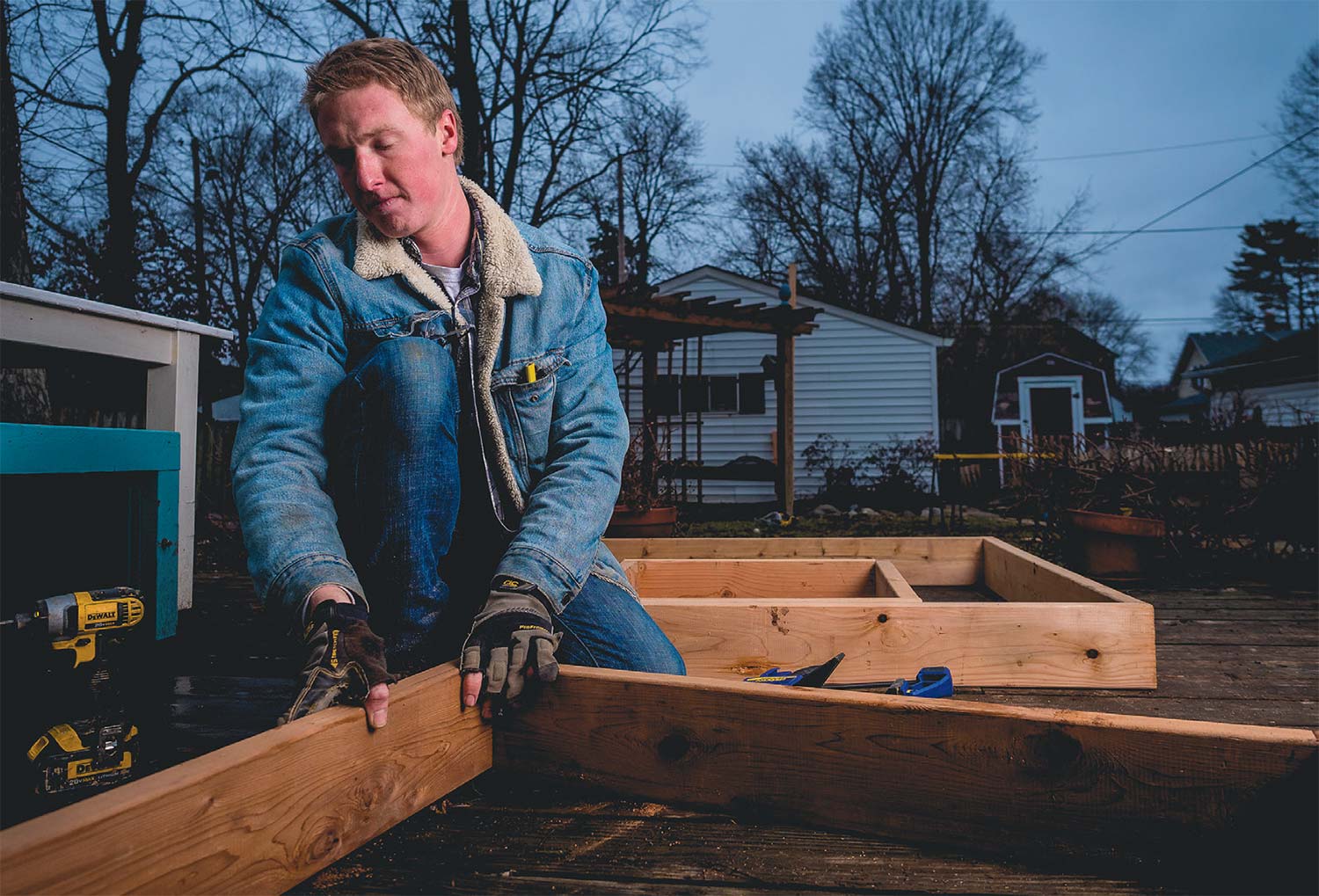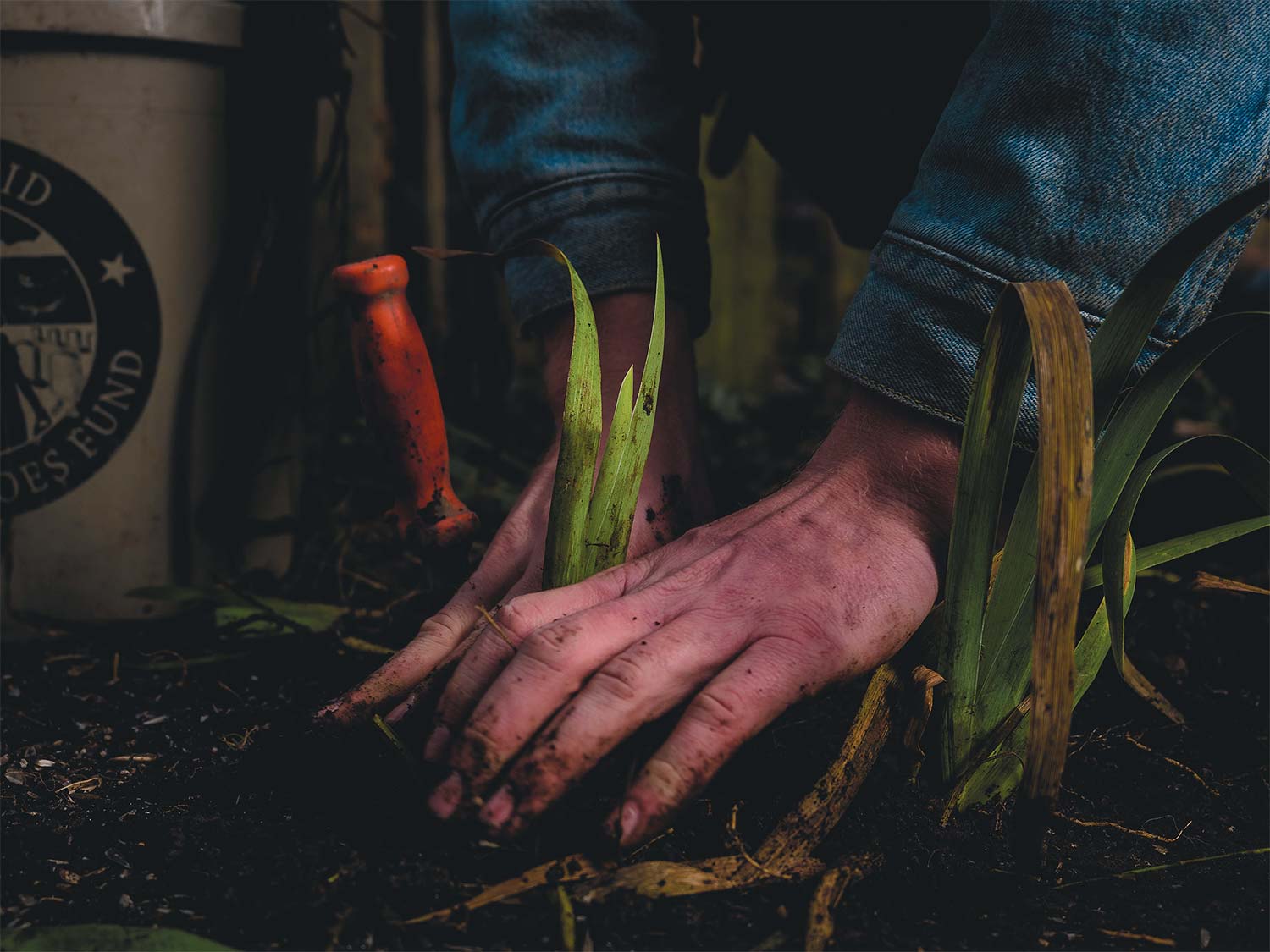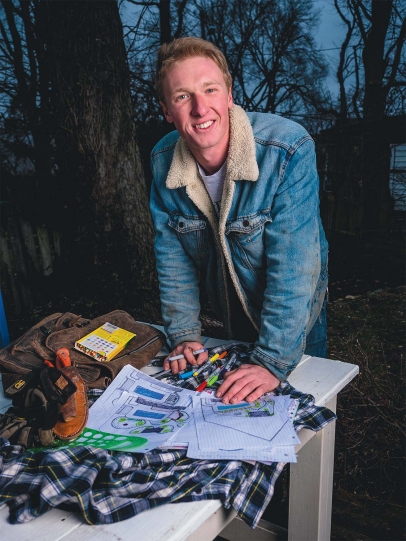PERMACULTURE: GARDENING NATURE’S WAY
EasyPeasy puts permaculture principles to work
“Many people believe permaculture is just another word for organic gardening and farming,” says Michael T. Whisler, founder of EasyPeasy Garden Solutions. “But the word itself is a combination of the words permanent and culture, and it has implications on every aspect of daily life.”
Although it is hardly a new agricultural philosophy, the concept of permaculture has had a resurgence in recent years. Bill Mollison, the Tasmanian son of a fisherman, coined the term in 1978 to describe an agricultural ecosystem intended to be sustainable and self-sufficient.
According to Mollison, permaculture is the conscious design and maintenance of agriculturally productive systems that have the diversity, stability and resilience of natural ecosystems. It is the harmonious integration of the landscape with people, providing their food, energy, shelter and other material needs in a sustainable way. In summary, permaculture is a way for people to live a self-sustaining life through growing and harvesting their own food.
“Permaculture is a framework for contemplation, calculation and creation, designed to work with the flow of nature instead of against it,” says Whisler. “It is the process by which we can take raw materials—some lumber, soil, seeds, elbow grease, sunshine and water—and we create something greater than the sum of its parts, a thing of beauty and bounty: a garden.”

“Permaculture is a framework for contemplation, calculation and creation, designed to work with the flow of nature instead of against it,” says Whisler. “It is the process by which we can take raw materials—some lumber, soil, seeds, elbow grease, sunshine and water—and we create something greater than the sum of its parts, a thing of beauty and bounty: a garden.”
DESERT TO GARDEN
Whisler grew up in Westfield, Indiana. Knowing he wanted to work in the natural environment in some way, he studied outdoor recreation, parks and human ecology at Indiana University’s School of Public Health. During his junior year, Whisler took a permaculture design course and fell in love with the idea of living in a conscious way that not only was sustainable, but actually a force for improving the health of the landscape.
“I believe the solutions to most of our problems can be found in the garden,” says Whisler. “A passion for nature is what eventually led me into the world of permaculture. I wanted to facilitate connection with the earth in people’s lives. In a time when people have come to expect more conveniences, social safety nets, prescription remedies, two-day deliveries, high-speed internet, fast-food lunches and microwave dinners, permaculture espouses a different approach to life. I believe that food is the best tool we have to show people the importance of slowing down, taking care of ourselves and actively healing the environment that sustain us.”
Whisler participated in an internship at Capitol Reef National Park in Utah’s south-central desert doing orchard management for the park service.
“This was a great place to see permaculture at work,” says Whisler. “The orchards were built four generations ago, but they are a perfect example of what we call permaculture today. Pioneers of Capitol Reef, as well as the Native Americans before them, created a landscape in the desert that fulfilled all of the needs of their community, in a time before artificial fertilizers and pesticides, tractors or technology.”
Utah had become Whisler’s home away from home while he worked at Capitol Reef National Park. But after his internship and then traveling throughout the western United States, he began to miss his home state of Indiana. He wanted to return to his roots, where he grew up and has family, and he saw returning to Indiana as a way for him to bring all he learned about permaculture and gardening back to the Midwest, where the concept is not as widespread as it is on the West Coast.
“During my studies, I became increasingly concerned with both urban sprawl and the desertification of our Midwestern farmlands,” says Whisler. “I grew up in a suburb of Indianapolis that has exploded since I moved away. Graduating classes doubled in size since I finished high school. I saw farms replaced with subdivisions and began to view all the development in a negative light, almost like a cancer. After some time, however, I began to see the suburbs in a different way. If I could bring some of the ideals of permaculture and urban homesteading back to Indy, I could have a direct, positive impact on the landscape I grew up in, and help folks put their land to better use.”
He found his “dream job” working at Bread and Roses Nursery in Bloomington, where they practiced permaculture by growing edible vegetables, berry bushes and fruit trees, and building gardens and greenhouses.
“I was living in a cabin, completely off grid with solar power and rainwater collection,” says Whisler. “During the winter, there wasn’t much to do other than feed the fire and hang out with my dog. That’s when the idea came to me for a semi-standardized gardening system that could be applied to a suburban or urban setting.”
Whisler says working for Bread and Roses and living on site at the nursery for two years was the inspiration for EasyPeasy, launched one year ago.

EMPOWER & EMBRACE
Whisler believes the act of gardening creates more vibrant, resilient and healthy households. This is done primarily through the raised-bed garden model. In approximately one day, Whisler will go to a customer’s home and turn a space that was nothing but grass into a full-planted vegetable garden.
He enjoys working with beginning gardeners and customers who enjoy getting into the thick of the work, asking questions and digging dirt alongside of him. But he is quick to note that the “aging gardeners” have been humbling customers as well.
“A few of my clients have spent decades creating stunning gardens around their homes, and they are now at a point where the physical demands of gardening are more than they can handle,” says Whisler. “So they hired me to help maintain the gardens they cherish. These clients have taught me that no matter how much you know, the garden always has more to teach.”
Dean Lawler is one of these clients. He and his wife, Dee, hired Whisler several years ago to help maintain their yard when Dean was diagnosed with Parkinson’s disease. Lawler admits he was hesitant to hire anyone to help with what he considers, such a personal job as nurturing the garden. But he has been pleased with Whisler’s work ethic and care of the plants.
“He’s a pleasure to have around and we feel good about all the work that he does,” says Lawler. “He’s really transformed our landscape and garden single-handedly. There’s no way we could have kept up with the yard and work with having Parkinson’s. I don’t know what we’d do without him.”
Whisler has plans to continue growing EasyPeasy into the future. Through all his plans, Whisler is committed to staying true to permaculture and how it can make a difference in people’s lives.
“Permaculture design is about living a life of quality and sustainability; to be more than a just consumer, but a producer as well,” says Whisler. “It is about designing a lifestyle in which our basic needs are met locally and naturally, while actually improving the health and quality of the landscape.”
EasyPeasy Garden Solutions offers a new subscription model in which customers can pay a monthly membership fee and receive services such as fertilize, weed and general maintenance of the garden on a regular basis. Learn more at EasyPeasyGardens.com.





